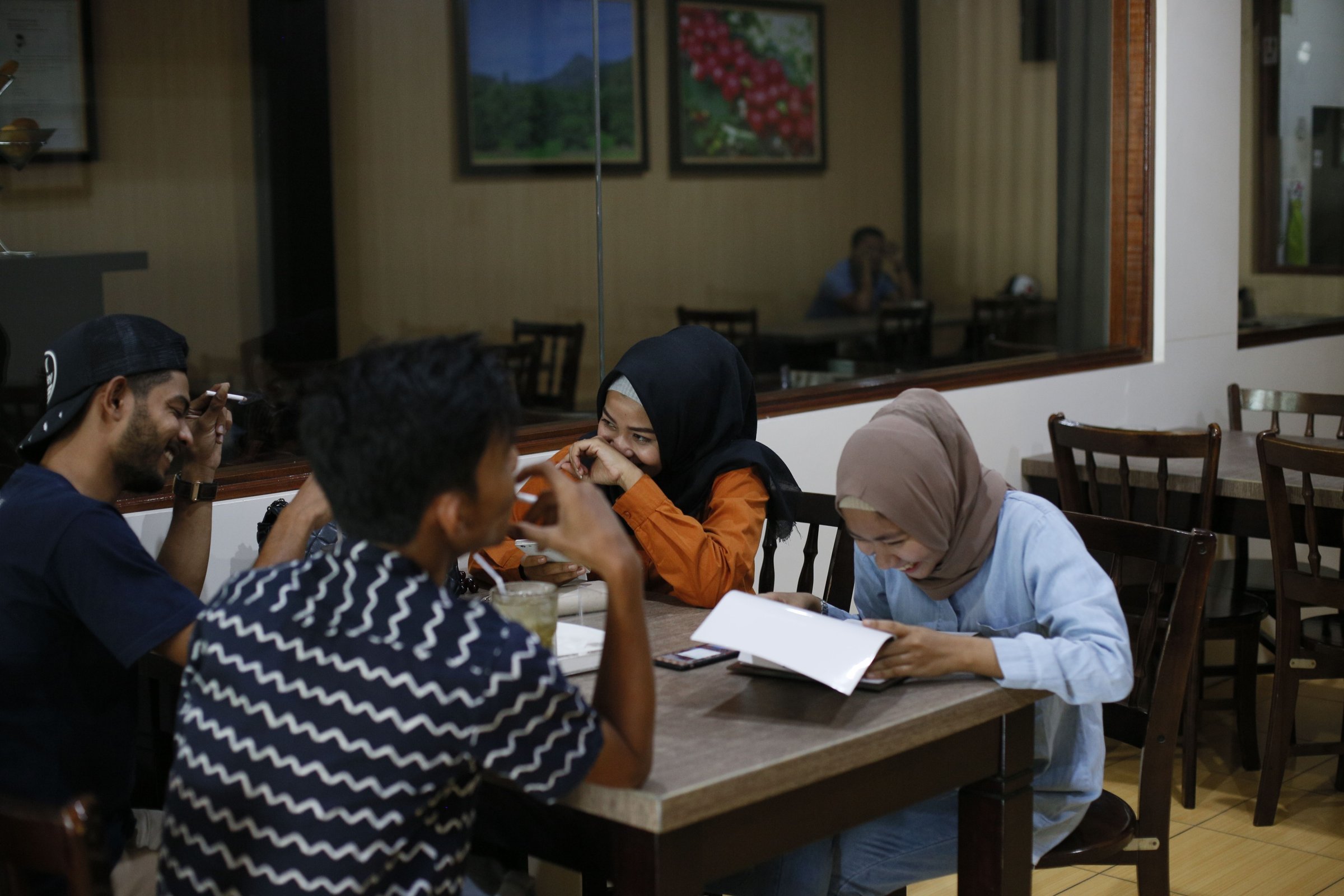
A district in one of Indonesia’s most conservative regions has advised restaurants and cafes to prevent men and women who are not closely related from dining together.
The head of Bireuen district’s Islamic Affairs office in northern Aceh province sent out a circular to restaurants and cafes urging business owners to adhere to Islamic Shariah law, and do their part to nip in the bud any public displays of affection between unwed couples, the Associated Press reports.
“Unmarried males and females who are not close relatives should not eat and drink at the same table, because it is sinful according to Shariah law,” said Jufliwan, head of Bireuen district’s Islamic affairs office.
“The objective is to protect women’s dignity so they will feel more comfortable, more at ease, more well behaved and will not do anything that violates Sharia (Islamic law),” he told Agence France-Presse.
The measure also urged restaurants not to serve women after 9 p.m., unless they are accompanied by their spouse or a male relative.
The regulation was first issued in 2016, according to Jufliwan, who added that it has been reissued when repeated transgressions seem to merit a reminder.
The notice, which was reissued on Aug. 30, also prohibits food sellers from hiring lesbians, gays, bisexual or transgender people as waiters.
Jufliwan said the restaurant memo could gain legal teeth if provincial lawmakers approve a proposal to turn it into a bylaw.
Aceh has long been one of Muslim-majority Indonesia’s most conservative regions, and is the only province to practice a strict enforcement of Sharia law. Granted semi-autonomy amid concessions to end a separatist movement, the province has increasingly sought to regulate its residents’ personal lives through a bevy of strict ordinances.
Previous laws passed by the local parliament include requirements for women to wear headscarves and avoid tight clothing, and prohibitions on gambling, alcohol and same-sex relations, which can be punishable by public canings.
In 2015, a full Islamic criminal code that subjects both Muslim and non-Muslim residents to the region’s strict interpretation of Shariah came into effect. Human rights activists have rallied against the province’s harsher bylaws, arguing that at least the region’s laws should not be allowed to contradict the country’s constitution or international human rights laws.
More Must-Reads From TIME
- The 100 Most Influential People of 2024
- The Revolution of Yulia Navalnaya
- 6 Compliments That Land Every Time
- Stop Looking for Your Forever Home
- If You're Dating Right Now , You're Brave: Column
- The AI That Could Heal a Divided Internet
- Fallout Is a Brilliant Model for the Future of Video Game Adaptations
- Want Weekly Recs on What to Watch, Read, and More? Sign Up for Worth Your Time
Write to Laignee Barron at Laignee.Barron@time.com